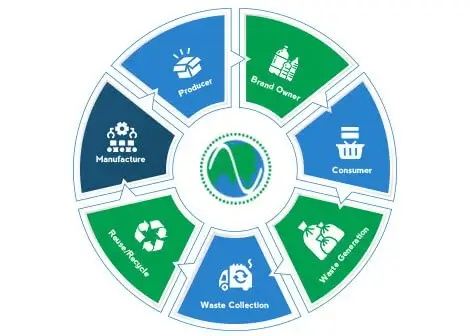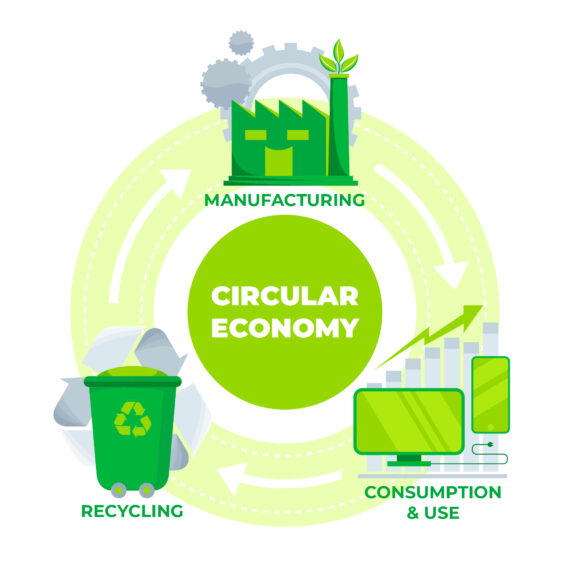
How Will Upcoming E-Waste Regulations Impact Your Business?
In an era dominated by technological advancements, the exponential growth of electronic devices has given rise to a significant environmental concern – electronic waste or e-waste. To address this issue and promote sustainability, upcoming e-waste regulations are set to bring about significant changes in the way businesses manage their electronic products’ lifecycle. However, these legislative changes will have a big impact on businesses, changing how they handle electronic devices, from procurement to disposal. In this blog, we will discuss the critical aspects of upcoming e-waste regulations and their potential consequences for businesses.
Understanding the Key Aspects of E-Waste Regulations
E-waste regulations primarily focus on the responsible management of electronic devices to reduce environmental impact, promote recycling, and minimize hazardous materials in landfills. Key aspects of these regulations include:

1. Extended Producer Responsibility (EPR): Many upcoming regulations are likely to implement or strengthen Extended Producer Responsibility programs as they shift the burden of responsible e-waste management onto manufacturers and retailers. It means companies will be held accountable for the entire life cycle of their products, from production to end-of-life disposal.
2. Strict Recycling Standards: Governments are expected to introduce more strict& rigid recycling standards for electronic devices. Businesses will be required to adhere to specific recycling processes to ensure valuable materials are recovered, and hazardous substances are safely disposed of.
3. Data Security and Privacy Concerns: As the disposal of electronic devices involves handling sensitive data, regulations may emphasize secure data wiping or destruction methods to protect consumer privacy. Businesses must adhere to data protection laws and adopt robust data security measures during disposal.
4. Documentation and Reporting Requirements: Please be aware that there may be an increase in documentation and reporting requirements that you may need to fulfill in the future. Companies may need to maintain detailed records of their e-waste management activities to maintain transparency and accountability in their processes.
Potential Consequences for Businesses
Although the primary objective of e-waste regulations is beneficial for the environment, businesses may encounter various challenges and consequences when adjusting to these changes:
1. Cost Implications: Implementing responsible e-waste management practices can lead to higher operational costs for businesses. It includes adopting eco-friendly manufacturing processes and investing in advanced recycling technologies, which may require companies to allocate more resources to meet compliance requirements.
2. Supply Chain Disruptions: Manufacturers relying on global supply chains may encounter disruptions due to varying e-waste regulations across different regions. It could lead to delays in production, increased logistics costs, and challenges in maintaining consistent product quality.
3. Reputation Management: Businesses failing to comply with e-waste regulations may face reputational damage due to increasing public awareness of environmental issues. Consumer preferences are shifting toward eco-friendly and socially responsible companies, making adherence to these regulations crucial for maintaining a positive brand image.
4. Legal Consequences: Non-compliance with e-waste regulations can result in legal repercussions, including fines and penalties. Businesses & Companies that neglect responsible e-waste management may face expensive legal disputes, which can harm their financial performance.
Recommendations for Businesses To Deal With EPR Rules Effectively-
Embrace Circular Economy Principles:

Adopt a circular economy approach that prioritizes product reuse, repair, and recycling over linear, single-use models. Design products with modular components to facilitate easier repair and upgrade, prolonging their lifespan and reducing e-waste generation.
Collaborate Across the Supply Chain:
Forge strategic partnerships with suppliers, manufacturers, and recycling facilities to establish closed-loop systems for efficient e-waste management. Collaborative initiatives can streamline the recycling process, optimize resource utilization, and mitigate compliance risks.
Invest in Sustainable Practices:
Allocate resources towards research and development initiatives focused on eco-design principles and sustainable materials. Innovate packaging solutions that minimize waste, utilize recycled materials, and employ biodegradable alternatives to reduce environmental footprint.
Educate and Engage Stakeholders:
Educate employees, suppliers, and consumers about the importance of responsible e-waste management and compliance with regulatory requirements. Foster a culture of environmental stewardship and social responsibility within the organization and across the supply chain.
Leverage Technology Solutions:
Harness the power of emerging technologies such as blockchain and the Internet of Things (IoT) to increase traceability and transparency in e-waste management processes. Implement digital platforms to track product lifecycles, monitor recycling activities, and ensure regulatory compliance.
Conclusion
As governments worldwide prepare to implement strict e-waste regulations, businesses need to adjust to these changing rules to succeed in the future. By focusing on sustainability, working together, and using new technologies, organizations can deal with the challenges of e-waste regulations and take advantage of growth opportunities. Businesses have a significant role in establishing a sustainable future where electronic products are handled responsibly to reduce the negative effects of electronic waste on our planet and communities.
Follow us:







